Employee engagement strategies build trust, foster a sense of belonging, improve employee retention and ultimately boost a company’s bottom line. It’s a win-win for everyone. Here’s how to build a company culture of employee engagement. By Sarah Harrop.
Employee engagement is the extent to which employees feel a passionate connection to the organisation, are committed to their work, and put in the extra effort. It’s important because nobody benefits from unhappy employees who do not feel that their hard work is recognised or appreciated.
Research published in ‘The Burnout Epidemic’ by Jennifer Moss shows that, when asked about aspects of their jobs that undermine their mental health and wellbeing, employees frequently say that unfair treatment, unreasonable workloads, low levels of autonomy, inadequate social support and the feeling of being on call 24/7 are some of the biggest contributors.
Another study carried out by Gallup found that unengaged employees are 61% more likely to experience burnout, 48% more likely to experience daily stress and twice as likely to report daily sadness and anger. Disengagement and low staff retention may ultimately negatively affect an organisation’s profitability.
“When employees are truly engaged, teams go from being good to being great. Challenges turn into opportunities, outcomes turn into achievements, and people give it their all,” says Workleap, a company which makes software to improve employee engagement and other HR functions.
Six strategies for keeping employees engaged
Managers have considerable influence on employee experience and helping to create an engaged workforce. Employee morale and how team members work together is largely within their hands. Here are six simple but effective strategies in which managers can promote a work environment of motivated, engaged employees, according to Forbes Coaches Council:
- Pay for training programmes. Picking up the bill for team and individual professional development opportunities for growth and learning new skills shows that your organisation is invested in people’s career progression and team development, leading to better job satisfaction and an upskilled, competent workforce.
- Spot skills and talents and shout about them. If managers consistently seek out and recognise the good in employees, they feel ‘seen’ and appreciated. Employee recognition builds trust, nurtures top talent and boosts performance.
- Create informal leadership opportunities. Even if an employee might not see themselves as manager material, if they’re given a step up in responsibility, such as managing a project or leading a new initiative, it’s an instant morale booster.
- Work on shared aspirations. Getting a team together to define their shared vision is empowering and contributes to employee satisfaction, team building and meeting company goals.
- Open communication. Regular check-ins should be a priority for any manager, to show genuine interest in what employees want to achieve, take on feedback and build trust.
- See and hear each person. Managers who encourage mentoring and actively listen to their staff and take an interest in them as fellow humans will get better performance from them.
- Find out what employees really think. It’s important to provide employees, both as individuals or as teams, with the chance to share honest feedback without fear of retribution. Gathering employee feedback can help motivate and improve the performance of both staff and organisations.
How to measure employee engagement
Metrics are essential for understanding engagement levels of the workforce, so that action can be taken where it is needed, and interventions can be designed to improve employee engagement across the company. Some metrics, as recommended by the Academy to Innovate Human Resources (AIHR), include:
- Voluntary employee turnover rate
- Employee retention rate
- Absenteeism
- Employee Net Promoter Score (eNPS)
- Employee satisfaction (as measured through employee engagement surveys)
- Employee performance
- Glassdoor.com rating
- Return on investment on employee engagement
- Customer happiness
- Utrecht Work Engagement Scale (UWES) and Gallup Scale.
However, measuring employee engagement is not the easiest of tasks. Engagement is a complex topic; it’s a cocktail of people’s motivation, emotional connection to the work, happiness, satisfaction, and commitment.
For example, a person might be highly committed to their work but also be burnt out because of poor work-life balance. Or an employee feels happy with their job but completely in the dark about what their peers and manager think about their performance.
According to the AIHR, “There is no single employee engagement metric that tells you everything you need to know about employee engagement. A good dashboard will include a handful of metrics that help you learn about your employees, inform your decisions, and help you to have meaningful conversations with employees.”
The challenge of remote working
Since the COVID-19 pandemic, more people work remotely or in hybrid working models than ever before. What impact has this had on employee engagement?
One August 2021 study carried out through interviews with 31 British people working from home revealed that the sudden transition from in-person to online modes of working during the pandemic brought about work intensification, online presenteeism, employment insecurity and poor adaptation to new ways of working from home.
“These stress factors are capable of depleting vital social and personal resources, thereby impacting negatively on employee engagement levels,” say the study’s authors.
Further research by Gallup, shows that just 28% of employees who work 100% remotely feel a connection to their organisation’s mission or purpose.
The practical implications of this are that employers, leaders and human resources teams need to carefully consider the risks and challenges employees face when working from home. What’s more, there needs to be a clear focus to help remote working employees feel more connected with their team and organisation.
This could be particularly pertinent when it comes to new hires who may not get the teamwork, relationship building and learning opportunities that past generations of employees enjoyed in the five days a week face-to-face working environment.
However, remote working can also be good for employee engagement, as it brings increased autonomy and flexibility and removes the stress associated with commuting.
The AIHR suggests these ideas, perks and incentives to boost employee engagement ideas for remote workers:
- Creating a great onboarding process
- Providing a remote work allowance
- Introducing online buddy systems
- Prioritising communication and setting clear expectations
- Making a remote work resources library
- Fostering employee involvement in decision-making
- Organising memorable in-person gatherings.
Expert leadership skills for the ‘people person’
The University of Sunderland’s 100% online MSc Management with HR is for busy working professionals who want to develop the skills and knowledge to boost their career prospects and progression and earn while they learn.
Study on this master’s course and you’ll develop your competencies in leadership and management, examining how professionals can become effective managers and leaders in the modern world of work. A specific focus on the organisational and people aspects of business and management will deepen your understanding of international human resource management, organisational development, resourcing and talent management.
You’ll also learn about core business disciplines, enabling you to put theory and contemporary thinking into practice by exploring relevant case studies for your own professional development. From effective decision-making and operations management to entrepreneurship and starting a new business, this course has everything you need to boost your career and become a successful leader.






